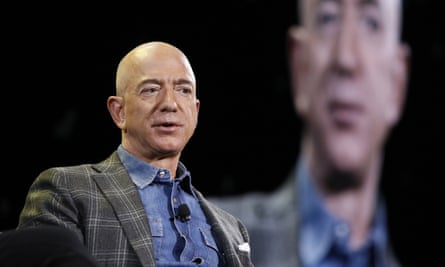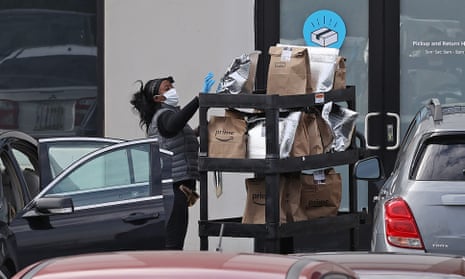We were initially anxious about the introduction of robots into our workforce because of the potential disappearance of manual labor jobs. Robots would take over factories, we were told, they’d drive our cars and trucks, and they would do all of the cleaning that janitorial and domestic workers are currently hired to do. But it turns out auto-pilots drive cars about as well as my cat when he’s drunk, and the way my friend’s Roomba always gets lost under the kitchen table, spinning uselessly, unable to find his way out, suggests we’ll still need people with brooms for a while now.
Instead, the robots are here not to replace this lower tier of underpaid and undervalued work. They are here to smugly sit in the middle, monitoring and surveilling us, hiring and firing us. Amazon has recently replaced its middle management and human resources workers with artificial intelligence to determine when a worker has outlived their usefulness and needs to be let go. There is no human to appeal to, no negotiating with a bot. This is the most boring possible Terminator sequel, where the robots aren’t here to murder or enslave you but rather to text you snidely that you won’t need to come into work tomorrow or, for that matter, ever again.
According to a report by Bloomberg, Flex drivers, who are Amazon contract workers and not granted the protections reserved for full-time employees, are being hired and fired via an app. A software program monitors each worker to determine whether they are working quickly enough, whether they are driving safely enough, and whether they are efficiently meeting their delivery quotas. That this program is rife with errors and punishes workers for things that are not their fault, from traffic problems to incorrect delivery directions, does not seem to concern Amazon. Workers have often complained about the unfair monitoring and lack of human oversight, but Amazon has maintained its system.
It’s not even difficult to figure out why. Jeff Bezos, who keeps promising us he is going to leave Earth and go to space but here he still is, seems to believe all workers are inherently lazy. And look, it’s always very helpful when our billionaire overlords just say the evil thing out loud so we don’t have to speculate. The man who designed Amazon’s warehouses has pretty much said that Amazon’s systems are set up to promote high employee turnover, because longer-term workers are more comfortable and less desperate to please.
The desperation is key. When human beings are uncertain about why things are happening to them, or feel a general loss of control over the outcomes of their own actions (because, say, they are doing their job to the best of their ability but are suddenly, mysteriously, fired), it causes anxiety and desperation. It makes superstitious pigeons out of all of us, flapping our wings wildly in the hopes we can recreate the conditions that once got us rewarded.
This system works for Amazon because the US maintains a large population of insecure and underpaid workers. (And by insecure, I don’t mean the same insecurity that drives our billionaires to compensate for a sadness deep down inside with extravagant wealth. I mean a lack of stability in finances and housing.) Bezos and others like him seem to think there is an endless supply of people available to be churned through their system and spat out when convenient. And, until recently, they were not wrong.

The terrible working conditions of Amazon delivery drivers has made headlines for years, but Amazon has not struggled to fill those jobs – even as delivery vans are targets of theft and looting, and delivery drivers are harassed and followed by residents through neighborhoods. In an open letter to Jeff Bezos last year, Abe Collier wrote about his experience working as an Amazon delivery driver and the pressures put upon him during a work day: intentionally dehydrating himself because of the lack of bathrooms, unrealistic expectations for speed of deliveries, hostility from passersby, physical strain. But Collier also wanted to make it clear that he was grateful for the opportunity to be mistreated in this way. He wasn’t eligible for unemployment benefits, and, he wrote, “Due to the pandemic, I was desperate for any income.” That gratitude was also behind the recent failure to unionize at an Amazon warehouse. Many workers spoke of being grateful for the work, as bad pay is better than no pay.
But thanks to the recent extension of unemployment benefits due to the pandemic, fewer workers are feeling the desperation that allows Amazon to treat its workers so cavalierly, as if they were disposable objects. Many employers who have overworked and underpaid workers are finding themselves without a staff to abuse, as people decide to prioritize their families or their health or just not being yelled at for $8 an hour over the “dignity of work”.
While politicians pout about the possibility of having to raise the minimum wage to $15, a level that would have sustained a decent life 10 years ago maybe, it’s likely these unemployment benefits will be allowed to expire and the safety net will be removed once again. Amazon isn’t going to change on its own unless forced to, and that means giving people the power – and the money – to say no to their own exploitation.
Jessa Crispin is a Guardian US columnist
